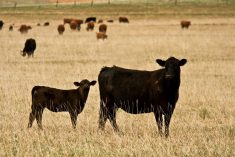Chicago | Reuters — Chicago Mercantile Exchange lean hog futures set contract lows for a second consecutive session on Wednesday under pressure from ample supplies.
U.S. pig farmers have been losing money for months due to weak prices for hogs and lackluster demand for pork.
Still, increased productivity in breeding hogs has helped increase the U.S. herd size slightly. The U.S. Department of Agriculture (USDA) also reported average hog weights increased to 292.5 pounds as of Dec. 30, up from 289.3 pounds a week earlier and 289.9 pounds a year ago.
Read Also

New opportunities for Canadian goods in Mexico
Agriculture minister’s trip to Mexico sees promotion of Canadian goods like beef and canola, with potential for more partnerships in the future
Demand for U.S. pork needs to increase to offset the large supplies, said Matt Wiegand, commodity broker for FuturesOne.
“It’s well supplied,” he said. “There are too many ready hogs that were backing up.”
Most-active February lean hog futures LHG24 settled down 0.025 cent at 65.300 cents per pound, after falling earlier to a contract low of 64.575 cents.
In the live cattle market, futures were mixed. The most-active February live cattle contract LCG24 ended down 0.075 cent at 171.850 cents per pound, after rising on Tuesday to its highest price since Nov. 30.
Most-active March feeder cattle FCH24, meanwhile, rose 0.575 cent to close at 227.025 cents per pound.
Meatpackers are losing money processing cattle into beef due to tight cattle supplies. Packers were losing an estimated $77.85 per head, compared to profits of $39.75 a week ago, according to HedgersEdge.com.
Packers slaughtered an estimated 128,000 cattle and 483,000 hogs on Wednesday, compared to 125,000 cattle and 488,000 hogs a week ago, according to the USDA.












